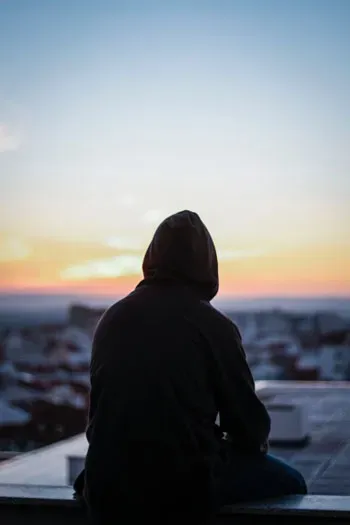It seems no mistake that the rainbow has become the primary symbol for the LGBTQ+ community. Each color represents an individual quality or virtue, together standing for inclusion of people from all backgrounds and identities.
Rainbows, however, come only after rain. Likewise, many in the Queer community carry deeply painful experiences of rejection, ostracism, and degradation. Unsurprisingly, LGBTQ+ individuals are overrepresented in mental healthcare. We are more likely to experience anxiety and depression and are at higher risk for addiction and suicide. All this is a symptom of trauma experienced around one's sense of self.
We often think of trauma as the result of large and horrific experiences, but it also comes from low-grade emotional wounding that occurs over time. Dr. Gabor Maté, a leading expert on addiction and trauma, clarifies that "trauma is not what happens to you, it's what happens inside you as a result of what happened to you."
Two particularly harmful types of trauma experienced by marginalized communities like the Queer community are unbelonging and dehumanization.
Unbelonging is the experience of being an outcast because of some part of one's identity. The painful message is that we are unacceptable, that something about us makes us unworthy of love and belonging.
Related to this is dehumanization, a deeper and more dangerous kind of unbelonging. It is the belief that certain people are less than human and therefore do not deserve humane treatment. This mindset has been the seed of every kind of violent movement against a specific group of people throughout history.
Despite the progress of recent years, dehumanization of the Queer community is very much alive. We continue to see misrepresentation of and verbal abuse against Trans people and drag queens, for example. Violent attacks in Queer community spaces continue, such as the mass shooting at Club Q in Colorado Springs in November 2022.
These are not events from a less evolved and distant past. This is the stark reality that Queer people face today as we move through the world. The seriousness of these circumstances means that we need allies who will speak up and step up when they see mistreatment or hear language that dehumanizes others. In the words of the late Archbishop Desmond Tutu, "If you are neutral in situations of injustice, you have chosen the side of the oppressor."
The antidote to unbelonging, dehumanization, and communal trauma is re-humanization. This requires people to take real action to undo injustice and give marginalized communities a voice. It requires stepping back and listening to the pain of others without trying to brush it off. If people truly care about those who have been pushed to the sidelines of society, then an intentional effort must be made to lift up marginalized people and bring them in.
For those of us who bear the wounds of unbelonging and dehumanization, our task is to engage in our own healing. We need to have the self-compassion to reach out for help, both from friends and mental health professionals. We need to muster the courage to be vulnerable and allow ourselves to be truly seen by those we trust, with all of our insecurities and imperfections. We must also give to ourselves that which we did not get from others: respect, compassion, and celebration.
Dr. Brené Brown describes this process as developing true belonging: "True belonging is the spiritual practice of believing in and belonging to yourself so deeply that you can share your most authentic self with the world and find sacredness in both being a part of something and standing alone in the wilderness. True belonging doesn't require you to change who you are; it requires you to be who you are."
The storm is still raging, and the struggle is not yet won. Yet as we work toward a better world, we can lift ourselves and others up. It's above the clouds that the light touches the rain and creates a rainbow, and it is when we witness and honor the collective trauma of others that real healing is possible.
Nick Norman, LICSW, is the business relationship manager at Mindful Therapy Group, a diverse and collaborative network of licensed, independent mental health clinicians serving Washington and Oregon.


